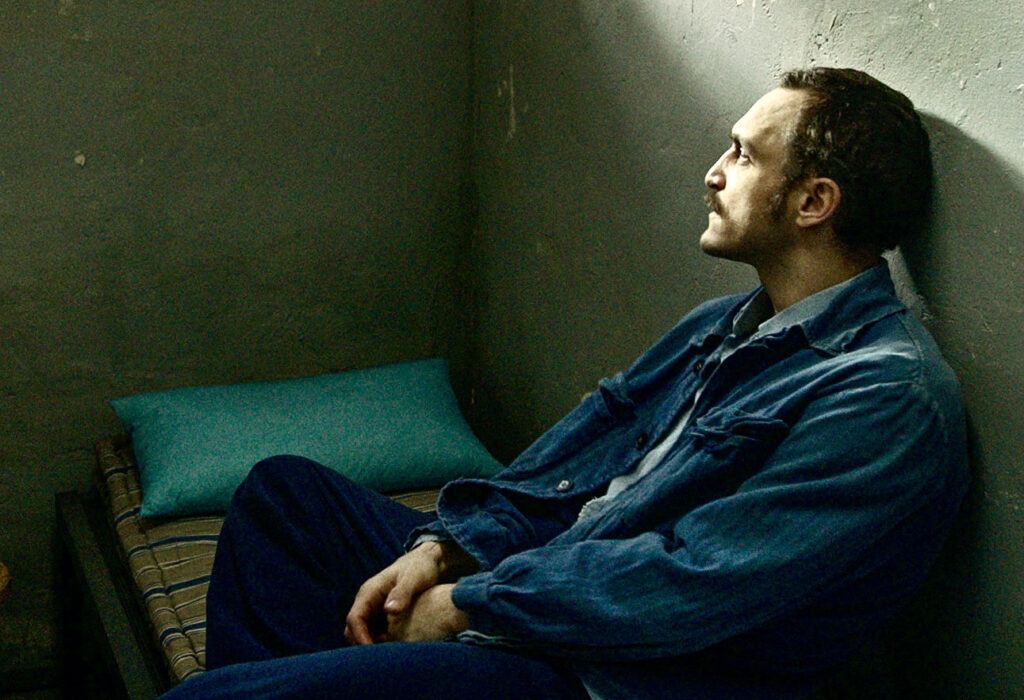
(***)
Sometimes a modicum of dialogue works best. That’s seems to be a basic strategy for Austrian writer/director Sebastian Meise and co-writer Thomas Reider. Show first. Tell second.
The two filmmakers created this perceptive ode to the downtrodden with special care. They set up the premise: persecution of gays post WWII. Picked a worthy protagonist: Hans (Franz Rogowski, Transit) a twentysomething hounded by vice police until he is a middle-aged man. Designated antagonists: a homophobic government. Then put Hans on a path: a lifetime wandering in and out of sexual trysts, loving relationships and prisons. And finally set a lasting tone: fear and anger under an ominous cloud of persecution.
In Germany, after the war, life didn’t get back to normal for everyone. Even with Allied forces in control and liberating many, gay people were still oppressed—some going from concentration camps directly to jail. Paragraph 175 of the German penal code made homosexuality punishable by imprisonment for up to 10 years. Police patrols looked for “indecent behavior” and Hans was netted multiple times over his lifespan. Sometimes meeting ex-lovers in jail. Sometimes making friends with hostile heterosexual convicted murderers (Georg Friedrich) too. Jail cells and prison yards can be great equalizers.
Though what the characters say is important in understanding the story, harassment and torment that lasted for decades, this really could have been a silent movie. So much of the plotline is in what you see and what is done. So much of the emotions are on the cast’s faces. And the sexual acts on view leave little to the imagination. Men are living their lives under a microscope and constant threats of violence, incarceration or death. Seeing that anguish, in this case, is more powerful than hearing it.
Meise’s approach is very subtle. Let the events play out. The highs are not so high. The lows not so low. There are fights and altercations, but not in the kind of exploitative ways that are more typical of prison movies. This one feels different. This style is helped greatly by Rogowski’s understated performance of the maltreated Hans. It’s also aided by Friederich’s astute interpretation of a hard murderer whose heart softens in a very unlikely way. It’s a credit to the two lead actors and director that you don’t question authenticity.
Their improbable man-to-man involvement is similar in scope and surprise to the Josh O’Connor and Alec Secareanu one in the British film God’s Own Country. In that instance, two totally disparate souls found commonality, lust and love despite their variant backgrounds and preconceived notions. Great Freedom’s bromance is similar, and its social themes provide thoughtful lessons. It’s an allegory about injustice depicted in a very intimate and personal way.
The musical score (Peter Brötzmann and Nile Petter Molvaer) accentuates the drama without blowing it out of proportion. Sometimes the sets look real (jail cells, bedrooms) sometimes not (sex catacombs), but they all make sense (production design Michael Randel). The use of earth tone colors is noticeable and grounding (art director Christine Dosch).
At points the camera looks like it’s shooting a dark German opera. Other times the lighting is so natural (cinematographer Crystel Fournier) you feel in the real world. Considering this is an adult drama and the filmmakers use cryptic time jumps, surprisingly the 1hr 56m time length (editor Joana Scrinzi) goes by relatively quickly with just a few disconnections. If there is a flaw, something that takes your eyes off the story, it’s looking at Friedrich’s odd hairpiece as he plays Viktor the tough guy. If the actor’s hair was not film ready, shaving his head would have been a better solution than the bird’s nest on his head and that fake ponytail.
This sad, unflinching look at yesterday’s human rights abuses is still very affecting today. Well-conceived and told with great artistry and integrity.
In theaters in New York and Los Angeles with a slow roll out across the country.
Trailer: https://www.youtube.com/watch?v=3Ejx94LC1R8
Visit NNPA News Wire Film Critic Dwight Brown at DwightBrownInk.com.